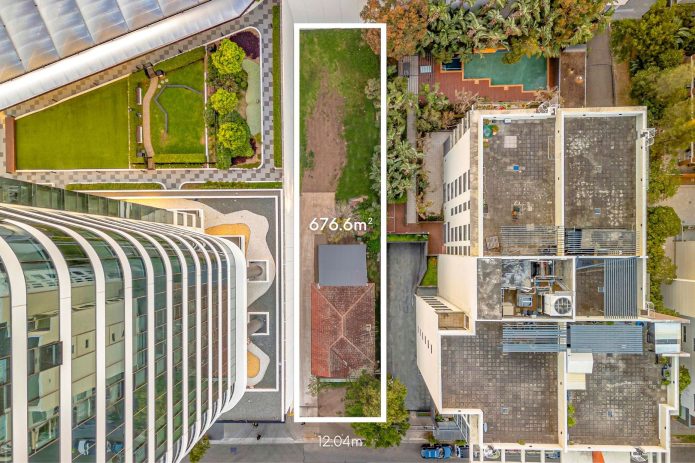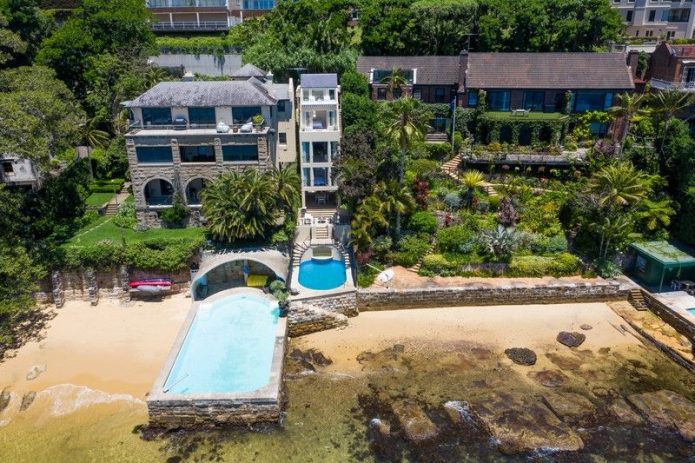PHOTO: Evergrande is currently building a new stadium for its football team, Guangzhou FC. GETTY
Global stock markets have been on high alert as crisis-hit Chinese giant Evergrande faces a key test this week.
The world’s most indebted real estate developer is due to make interest payments of $84m (£61m) on its bonds this Thursday.
Earlier in the week, the company started to repay investors in its wealth management business with property as it struggled to find cash to meet its liabilities.
What does Evergrande do?
Businessman Hui Ka Yan founded Evergrande, formerly known as the Hengda Group, in 1996 in Guangzhou, southern China.
Evergrande Real Estate currently owns more than 1,300 projects in more than 280 cities across China.
The broader Evergrande Group now encompasses far more than just real estate development.
Its businesses range from wealth management, making electric cars and food and drink manufacturing. It even owns one of country’s biggest football teams – Guangzhou FC.
Mr Hui has a personal fortune of around $10.6bn, according to Forbes.
Why is Evergrande in trouble?
Evergrande expanded aggressively to become one of China’s biggest companies by borrowing more than $300bn (£217bn).
Last year, Beijing brought in new rules to control the amount owed by big real estate developers.
The new measures led Evergrande to offer its properties at major discounts to ensure money was coming in to keep the business afloat.
Now, it is struggling to meet the interest payments on its debts.
This uncertainty has seen Evergrande’s share price tumble by around 85% this year. Its bonds have also been downgraded by global credit ratings agencies.
Why would it matter if Evergrande collapses?
There are several reasons why Evergrande’s problems are serious.
Firstly, many people bought property from Evergrande even before building work began. They have paid deposits and could potentially lose that money if it goes bust.
There are also the companies that do business with Evergrande. Firms including construction and design firms and materials suppliers are at risk of incurring major losses, which could force them into bankruptcy.
The third is the potential impact on China’s financial system.
“The financial fallout would be far reaching. Evergrande reportedly owes money to around 171 domestic banks and 121 other financial firms,” the Economist Intelligence Unit’s (EIU) Mattie Bekink told the BBC.
If Evergrande defaults, banks and other lenders may be forced to lend less.
This could lead to what is known as a credit crunch, when companies struggle to borrow money at affordable rates.
A credit crunch would be very bad news for the world’s second largest economy, because companies that can’t borrow find it difficult to grow, and in some cases are unable to continue operating.
This may also unnerve foreign investors, who could see China as a less attractive place to put their money.
READ MORE VIA BBC
MOST POPULAR
 Abandoned land for sale
Abandoned land for sale 2021 REINZ Awards for Excellence
2021 REINZ Awards for Excellence Bookabach guest takes legal action against host
Bookabach guest takes legal action against host Why we won’t continue to see the mother of all NZ property booms | Lucia Xiao
Why we won’t continue to see the mother of all NZ property booms | Lucia Xiao Culture breeds success despite lockdown
Culture breeds success despite lockdown Timaru flat the scene of an absolute tragedy | WATCH
Timaru flat the scene of an absolute tragedy | WATCH New Zealand named in top 10 most expensive countries to buy a house in
New Zealand named in top 10 most expensive countries to buy a house in The ‘Wānaka furore’ – A bach at the Southern Lakes has never been so topical
The ‘Wānaka furore’ – A bach at the Southern Lakes has never been so topical HOUSING CRISIS: NZ the second highest annual price growth in the WORLD
HOUSING CRISIS: NZ the second highest annual price growth in the WORLD Prime Minister Jacinda Ardern is now a property millionaire
Prime Minister Jacinda Ardern is now a property millionaire










